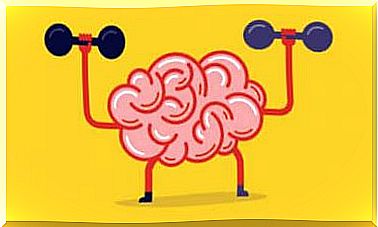The Fear Behind Anger

Anger is the maladaptive extreme of boredom and irritation. These last ones are considered healthy, basic and universal emotions, that is, they help us to solve the problems we face and that we all feel at some point in our life.
Irritation has the function of protecting us from what is likely to harm us. Thus, we could say that it is necessary to be irritated when the situation demands it, to define coherent boundaries with the world and with others, and express our expectations and needs.
Anger is no longer functional, it no longer helps us, it only hinders our actions towards achieving our goals. Furthermore, it makes us feel very bad on an emotional level, not to mention how harmful it is to our social relationships in general. What happens is that for fear of feeling pain, for fear of suffering, we hold on until the emotion says “Enough!” and needs to be expressed.
As if we were a pressure cooker, we are filled with uncommunicated annoyances and meaningless demands. So we end up angry, which makes us look like hostile and aggressive people.
Others stop taking us seriously or caring for us, and eventually tire of us. Thus, the aggressive way we use to express our pain makes us lose the reason that in the beginning could even be on our side.
Behind the anger there is a lot of fear
The angry person, even though they may seem tough, enlightened and someone who imposes respect wherever they go, deep down is a being scared to death. She needs to use this way of expressing herself, this anger, to defend herself. What do angry people intend to defend themselves from? Of course, something that can harm them or make them suffer. They are very afraid of falling into suffering and use this anger strategy to get rid of it.
The question immediately comes: Why will these people suffer or feel pain? The answer is clear: not seeing their expectations, needs or demands fulfilled makes them very afraid, because it means that not always the world, life or others will do things the way they would like.

The angry person interprets that he is in a dangerous situation for not having these demands met. This supposed danger makes them afraid, and this fear sends a signal to the body to create the fighting response which implies their defense. If necessary, the angry person will put into practice whatever strategy they think can save them : yelling, intimidating, breaking things, overacting, insulting…
Perhaps with this behavior you think that things will change, but in the end this is not what happens and the person ends up encountering more problems : fights with family or friends, stomach pains, taking drugs to escape problems, etc…
How to manage anger?
To begin with, we have to know that the goal is not to eliminate the healthy emotion of anger, but rather the anger that is tripping us up. Getting angry is beneficial and allows us to have healthier social relationships as well as great emotional release for ourselves.
The first step we must take to eliminate anger is, as with all emotions, to accept it and want to feel it. For this, we can retreat to a silent room, close our eyes and let it enter our body, create our own space for it, give it a name, shape and color so that we can feel it exists and observe it .

Once you have accepted your emotion and its intensity has subsided, you can begin to question your demands on the world and others. For this we can ask some questions: “What am I saying to myself to feel this anger? What am I demanding? Are these requirements realistic? Can people act as they please or do they have to succumb to my wishes?”
You can ask yourself these questions until you find your absolutist demands and decide that you have to change them by desires and preferences, accepting that even if you want something to happen, it might not actually happen.
Last but not least, you must discover this fear that is deep within you and see what need you have that has not yet been discovered. Maybe it’s something that comes from your childhood, such as a need for love, security, or a more present need related to love, family, or work.
Once you’ve identified it, write it down, take it out, become aware and, just as you did with the demands, question it and realize that you no longer need all that you think you need. If this need you have is not met, nothing terrible will happen as you might think, as it is not realistic.









